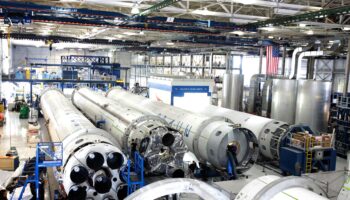Introduction:
In the dynamic tapestry of the modern workforce, a profound transformation is unfolding, driven by the advent of Artificial Intelligence (AI). As AI technologies continue to advance at an unprecedented pace, the landscape of work is being reshaped, ushering in a new era of collaboration between humans and machines. This evolution in the world of work presents both unprecedented opportunities and complex challenges, urging us to navigate the intricate interplay between AI and human ingenuity.
Collaborative Synergy:
Contrary to dystopian narratives, AI’s impact on the future of work is not one of replacement but of augmentation. AI services as a powerful collaborator amplifying human capabilities rather than supplanting them. Tasks that are routine, repetitive, or data-intensive can be automated, freeing human minds for creative and strategic endeavors. The synergy between AI and human intelligence ushers in an age where innovative problems solving critical thinking, emotional intelligence and adaptability take center stage.
Skill Evolution:
The ascent of AI necessitates a reimagining of skillsets and learning pathways. While AI handles routine tasks, uniquely human skills become paramount. Adaptability, complex problem-solving, creativity, and empathy are valued traits that fuel career longevity. Lifelong learning becomes a cornerstone as individuals continuously upskill and reskill to remain relevant in an ever-evolving job landscape. AI-driven platforms provide personalized learning experiences, enabling individuals to harness new knowledge and skills on demanding.
Entrepreneurial Renaissance:
AI’s democratization empowers aspiring entrepreneurs to turn their innovative visions into reality. AI-powered tools and platforms reduce barriers to entry by streamlining market research, enhancing product development, and optimizing business processes. Startups and small businesses harness AI to compete with larger counterparts, fostering a diverse ecosystem of innovation. Entrepreneurial endeavors that leverage AI redefine industries, creating opportunities for disruptive solutions and economic growth.
Ethics and Human-Centered Design:
The rise of AI in the workplace prompts profound ethical considerations. Striking a balance between efficiency and human well-being requires conscious design. Ethical frameworks ensure that AI is harnessed to promote fairness, transparency, and inclusivity. Human oversight remains imperative, guiding AI’s decision-making and ensuring accountability. The integration of AI into work processes is not solely about efficiency but also about enhancing human flourishing.
Global Connectivity and Remote Work:
AI-powered communication technologies transcend geographical boundaries, enabling seamless global connectivity. Remote work becomes an integral part of the future of work, with AI-driven virtual collaboration tools fostering effective teamwork across time zones and cultures. The traditional 9-to-5 model transforms as flexibility and work-life balance take precedence, empowering individuals to design work structures that align with their personal lives.
Conclusion:
As AI gracefully dances into the realm of work, it augments human potential, propelling us toward a future marked by creativity, innovation, and collaborative brilliance. The partnership between humans and machines reshapes industries, careers, and the very nature of work itself. By cultivating a balance between technological advancement, ethical considerations, and human-centered design, we chart a course toward a future of work that is not only technologically advanced but also deeply enriching, inclusive, and empowering for all.
- THE EVOLUTION OF PLASTIC SURGERY - 17 June 2024
- CHOOSE THE RIGHT PERSONAL INJURY LAW FIRM IN CHARLOTTE NORTH CAROLINA - 16 June 2024
- Email UX optimization, offering actionable insights - 16 June 2024





